Explore Houston University of Texas’s Eligibility Criteria for Students Worldwide
High School Diploma, GED or equiv. International Education
144 Hours
4 Year (Self-Paced) Program
24
The course explores philosophic and artistic heritage of humanity expressed through a historical perspective on visual arts, music, and literature. Topics include myth, literature, art, music, television, cinema, and the theater. Also discussed are provocative issues in the humanities - religion, morality, happiness, death, freedom, and controversies in the arts.
Social and Cultural Geography considers why geography matters to the analysis and understanding social relations, cultural identity and social inequality. Course examines how social life is structured at a variety of scales with respect to ethnicity, industries, services, urban patterns, and resources of world as a whole.
English Composition provides you with rhetorical foundations that prepare them for academic and professional writing. You will learn the strategies and processes that successful writers employ as you work to accomplish specific purposes. You will develop skills in writing unified, coherent, well-developed essays using correct grammar and effective sentence structure.
College Algebra provides an overview of the fundamental concepts of algebra: an understanding of the general concepts of relation and function; and the ability to solve practical problems using algebra.
World Religions course offers the broadest coverage of world religions as they exist today; helping you understand the ideology behind the many religions that strive today. While it is impossible to cover all religions, it does cover those of the vast majority of people.
Evenly balanced between theory and applications, this course shows you how to establish an ethical theory and how to apply it to a range of specific moral issues. This course examines ethical problems in such areas as mercy killing, personal relations, business, sexuality, medicine, and the environment.
This course introduces the origins and historical development of art. Emphasis is placed on the relationship of design principles to various art forms including but not limited to sculpture, painting, and architecture. Upon completion, you should be able to identify and analyze a variety of artistic styles, periods, and media.
This course provides the mathematical foundation for an introductory calculus course. In addition to a brief review of basic algebra, the course covers equations and inequalities; functions, models, and graphs; polynomial and rational functions; exponential and logarithmic functions; trigonometric functions; and trigonometric identities and equations.
This course is an introductory study of the human body, including the basic structure and function of the major organ systems (nervous, endocrine, circulatory, reproductive, etc.) and the effects of diet, exercise, stress and environmental change on human health.
World History course present the big picture, to facilitate comparison and assessment of change, and to highlight major developments in world's history. This course emphasizes the global interactions of major civilizations so that you can compare and assess changes in the patterns of interaction and the impact of global forces.
This course creates an understanding of the principles of building construction and its impact on firefighting strategy. This course explains building materials and processes that are involved in the construction of structures and provides you with the knowledge required to operate safely and effectively within residential or commercial buildings.
This course covers the acquisition of appropriate reliability modeling and risk analysis tools to complement the basic and specific engineering knowledge for the technological area of application. This course provides an introduction to the principal concepts and issues related to the safety of modern industrial activities.
This course provides practical information regarding technology, management, and regulatory compliance issues, covering crucial topics like organizing, staffing, directing, and evaluating occupational safety programs and procedures.
This course covers experimental data relevant to the understanding of fire behavior of materials and appeals to all those working in fire safety engineering and related disciplines.
This course covers all types of fires. It is organized to present the theory and application of firefighting principles from the development to the extinguishment phase; it stresses on the importance of safety for firefighters
This course progresses from the important overview relationships of organ system physiology down to the tissue, cellular, and subcellular level. This course will teach you on how you can trace arteries, veins, and nerves through their courses and bifurcations.
This course addresses the growing interest in the legal, ethical, and regulatory aspects of integrating care into conventional clinical settings. Topics of this course include Race Discrimination, Americans with Disabilities Act, Family Medical Leave Act, Physical Fitness, Critical Incident Stress Management, and Arbitration/Mediation.
This course addresses the specific needs of firefighters and other professionals who deal with hazardous materials. This course encompasses the key aspects of safely handling hazardous materials and the response actions to be implemented during terrorist activity, hazardous transportation mishaps and other disasters.
This course provides you with a comprehensive initial introduction to suppression of structural fires. It introduces definitions, terminology, and a brief history of structural fire suppression. It also provides you with a basic knowledge of fire behavior, how and what materials burn, extinguishment systems, and basic methods of suppression.
An introduction to fire science with emphasis upon municipal fire services, fire defenses through prevention and the basic concepts of combustion and extinguishment defenses through prevention and the basic concepts of combustion and extinguishment.
This course introduces terminology and definitions, involved in fire service hydraulics. It helps you gain an understanding of the complexities involved in modern apparatus pumping and water delivery systems.
The primary intent of this course is to acquaint you with history, traditions, terminology, organization and operation of the service. It gives a deep understanding of the fire sciences terminologies, concepts and definitions.
This course addresses on the fire fighter's role in combating the fire; investigation techniques, reports, case histories, and court preparation as well as detection, prevention, and preservation of evidence in such cases.
This course introduces fire prevention concepts as they relate to community and industrial operations. These topics include the development and maintenance of fire prevention programs, educational programs, and inspection programs.
| Tuition Fee Breakdown | Cost |
|---|---|
| BACHELORS DEGREE | $31,680 |
| Medical Insurance | $0.00 |
| Personal Expenses | $0.00 |
| Study Materials | $0.00 |
| Food Cost | $0.00 |
| Total Tuition Fee | $31,680 |
At Houston University of Texas, we champion the convergence of affordability and opportunity. Our steadfast commitment to accessible education guarantees that high-quality learning is accessible to all. By eliminating financial obstacles, we grant students the freedom to thrive without the burden of overwhelming tuition costs, empowering them to carve out a bright and promising future.

| Topics Covered in This Course: | |||||||||||||||||||||||||||||||||
|
| Topics Covered in This Course: | |||||||||||||||||||
|
| Topics Covered in This Course: | |||||||||||||||||||||||||||||||||||
|
| Topics Covered in This Course: | |||||||||||||||||||||||||||||||||
|
| Topics Covered in This Course: | |||||||||||||||||||||||||||||||
|
| Topics Covered in This Course: | |||||||||||||||||||||||||||||||||||||
|
| Topics Covered in This Course: | |||||||||||||||||||||||||||||||||||||
|
| Topics Covered in This Course: | |||||||||||||||||||||||||
|
| Topics Covered in This Course: | |||||||||||||||||||||||||||||||||
|
| Topics Covered in This Course: | |||||||||||||||||||||||||||||||||||||||||||||||||||||||||||||||||||
|
| Topics Covered in This Course: | |||||||||||||||||||||||||
|
| Topics Covered in This Course: | |||||||||||||||||||||||||||||||||||||||||||||||||||
|
| Topics Covered in This Course: | |||||||||||||||||||||||||||||||||||||||||||||||||||||||||||||||||||
|
| Topics Covered in This Course: | |||||||||||||||||||||||||||||||||||||
|
| Topics Covered in This Course: | |||||||||||||||||||||
|
| Topics Covered in This Course: | |||||||||||||||||||||||||||||||||||||||
|
| Topics Covered in This Course: | |||||||||||||||||||||||||||||||||||||||||
|
| Topics Covered in This Course: | |||||||||||||||||
|
| Topics Covered in This Course: | |||||||||||||||||||||||||||
|
| Topics Covered in This Course: | |||||||||||||||||||||||||||||||||||||||||||||||
|
| Topics Covered in This Course: | |||||||||||||||||||||||
|
| Topics Covered in This Course: | |||||||||||||||||||||||||||||||||||||||||||||||||||||||||||||||||||||
|
| Topics Covered in This Course: | |||||||||||||||||||||||||||||||||||||
|
| Topics Covered in This Course: | |||||||||||||||||||||||||||||||
|

We specialize in providing online education solutions for students worldwide who are balancing studies and professional commitments. Our mission is to make quality education accessible to everyone, regardless of location or schedule constraints
Discover More
Get Substantial Career Growth With Our Accredited Degree Programs.